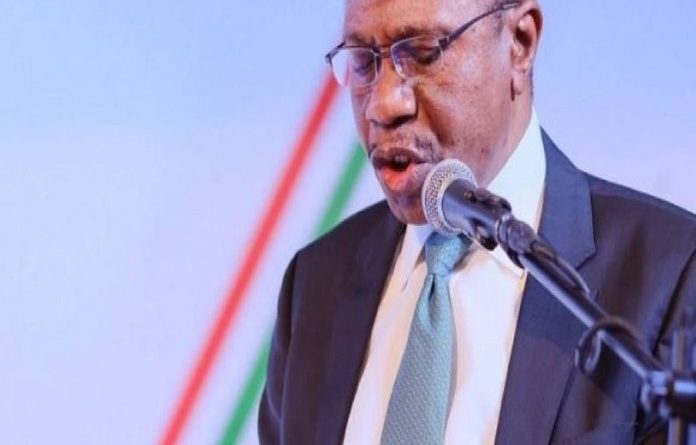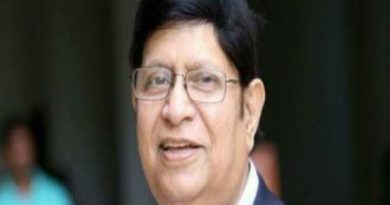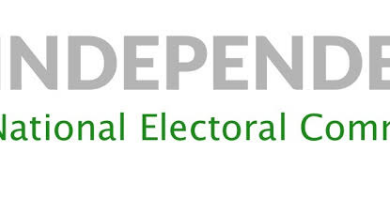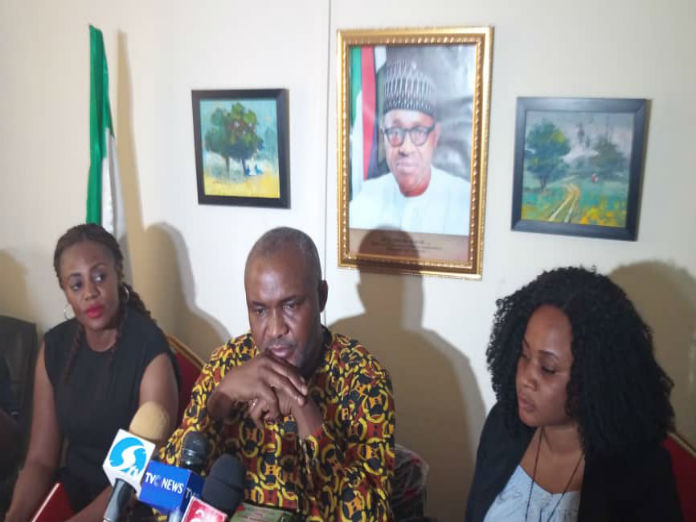CBN MPC Meeting: Reduces MPR to 12.5%, Holds Other Parameters
Oru Leonard
The Monetary Policy Committee(MPC) of the Central Bank of Nigeria(CBN), met on Thursday, May 28, 2020 amidst the covid- 19 pandemic.
According to Mr Godwin Emefiele, the Governor of CBN, “The Monetary Policy Committee (MPC) met on 28th May, 2020 in an environment of severe macroeconomic shock caused by the fatal spread of the Novel COVID-19 Pandemic, which first started as a health crisis in December 2019 in China and quickly morphed into a global economic crisis in the ensuing months. The pandemic induced economic shock is mainly characterized by disruptions to the global supply chain, on account of the mitigating measures including lockdowns, travel bans, and quarantines put in place by various governments to contain the spread of the disease. ”
At the end of the meeting Mr. Godwin Emefiele, who read the communique disclosed that the MPC voted to:
I. Reduce the MPR to 12.5 per cent;
II. Retain the Asymmetric Corridor of +200/-500 basis points around the MPR;
III. Retain the Cash Reserve Ratio (CRR), at 27.5 per cent; and
IV. Retain the Liquidity Ratio at 30 per cent.
Emefiele noted that the imperative for monetary policy at the May 2020 meeting was to strike a balance between supporting the recovery of output growth while maintaining stable price development across inflation, the exchange rate and market interest rates.
MPC also noted that the Cash Reserve Requirement (CRR) was recently adjusted upwards as a means of tightening the stance of policy, and in its response to the COVID-19 pandemic, however, the Bank reduced interest rates associated with all CBN interventions from 9 to 5 per cent.
Increasing MPR at this stage, it said, will be counter-intuitive and will result in upward pressure on retail market rates.
“In view of the foregoing, the Committee decided by a unanimous vote to reduce the Monetary Policy Rate (MPR) and to hold all other policy parameters constant”, Emefiele said. “Seven (7) members voted for a reduction of the policy rate by 100 basis points, two (2) members by 150 basis points and one (1) member by 200 basis points”.
The CBN Governor stated that Central to the Committee’s considerations were the impact of the COVID-19 pandemic, the oil price shock and the likely short to medium-term consequences on the Nigerian economy.
He further added that the Committee acknowledged the gradual improvement in macroeconomic variables particularly the improvement in the equities market, the containment measures of the COVID-19 induced health crisis, as well as, the impact of the increase in crude oil price on the external reserves.
“The Committee noted the stability in the banking system shown by the increase in total assets by 18.8 percent and total deposits by 25.52 per cent (year-on-year). The performance of the Loan-to-Deposit Ratio (LDR) policy which was introduced in July 2019 showed that total credits increased by N3.1 trillion or 20.45 per cent, with manufacturing, retail & consumer loans, general commerce and agriculture as major beneficiaries.
“The Committee recognised that under the N100 billion Healthcare Sector Intervention Fund, the Bank has approved and disbursed N10.15 billion for some projects for the establishment of advanced diagnostic and health centres and the expansion of some pharmaceutical plants for essential drugs and intravenous fluids.
“As part of the N1 Trillion intervention targeted at Agriculture and Manufacturing firms, the Bank has further disbursed N93.2bn under the Real Sector Support Fund to boost local manufacturing and production across critical sectors. This consists of over 44 greenfield and brownfield projects”.
On Targeted Credit Facility for Households & SMEs
He revealed that the Bank has also approved N10.9 billion to 14,331 beneficiaries under the N50 billion Targeted Credit Facility for households and SME’s, out of which N4.1billion has been disbursed to 5,868 successful beneficiaries.
On Reopening the Economy
The MPC stressed the need for Government to work towards a gradual reopening of the economy in line with recommendations of the Presidential Task Force (PTF) and advice from medical experts, insisting that efforts must be directed at saving not only lives but also livelihoods.
This, it said, is to enable the resumption of economic activities necessary to stimulate growth, accelerate the pace of recovery and restore livelihoods, particularly the vulnerable in our society.
On Prices, Output and Investments
The MPC expressed concern about the heightened inflationary pressure attributed to a combination of monetary and structural factors. While price stability remains the Bank’s primary mandate, the Committee expressed the need for a balanced approach in supporting growth in the face of rising domestic prices.
With respect to output, the Committee urged the Federal Government to continue exploring options of partnership with options of partnership with the private sector to fund investment in infrastructure. This, it said, would aid employment generation, support production and boost output growth.
The Committee also reiterated the need for both direct foreign and domestic investments to support growth in key sectors of the economy, including Nigerian auto manufacturing, aviation and rail industries.
“The Committee expects that on the backdrop of the various stimulus packages and increased credit at lower interest rates, the impact of the COVID-19 pandemic would be relatively less severe than had earlier been expected and the reversal in growth deceleration would become more optimistic”, he noted.
On Decision to Hold, Loosen or Tighten Policy Stance
Emefiele stated that on balance on whether to hold, loosen, or tighten, MPC was of the view that tightening of policy stance is for now inappropriate, as tightening will result in further contraction of aggregate demand, leading to decline in output, which is necessary to sustain the supply chain for growth recovery. Tightening will also increase the cost of credit and reduce investment and impact negatively on output growth.
As regards the option of holding previous policy stance, the MPC felt that a hold may indicate that the monetary authorities are insensitive to prevailing weak economic conditions. There is, therefore, the need to signal a direction towards immediate recovery. The Monetary Policy Committee also feels that a hold decision may slow down the trajectory of the weakened economy, compared with a loosening stance, thereby slackening output growth,
On loosening, whereas the Monetary Policy Committee is concerned that excess liquidity engendered by loosening may overshoot the economy’s absorptive capacity and accelerate inflationary pressure, it nevertheless feels that given the slow rate of acceleration of inflation, the accommodative stance will stimulate aggregate demand and supply in the short term. This is because an accommodative stance, through a lowering of the policy rate will stimulate credit expansion to critically important sectors that will also stimulate employment and revive economic activity for quick growth recovery.
The MPC said that if all stimulus packages already announced by the Bank such as concessionary rates, loan restructuring, and targeted loans to agriculture, manufacturing and health sector are well utilized, this will produce the desired impetus needed to boost economic recovery in Nigeria.




